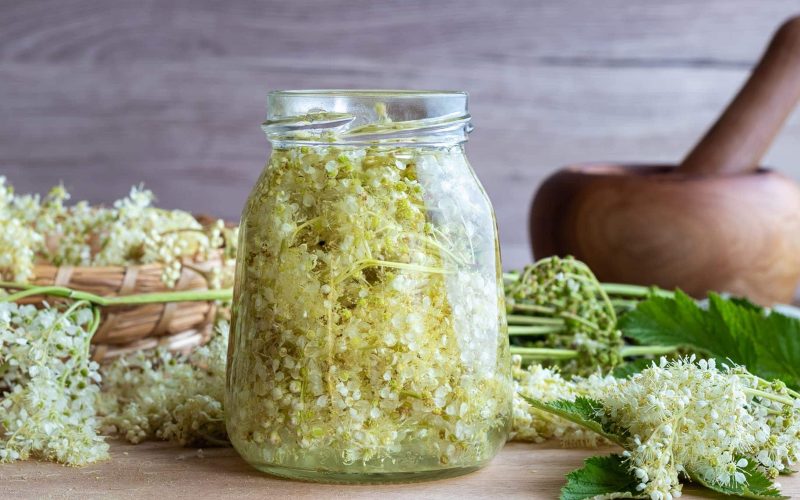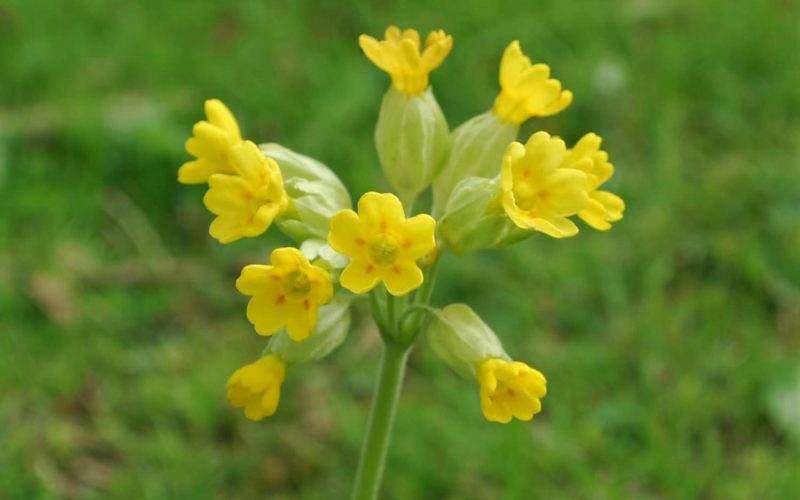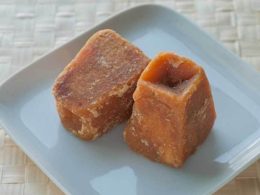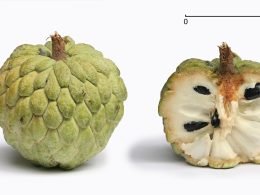Meadowsweet is one potent herb with a lot of amazing health benefits. One of the most well-known benefits of meadowsweet is its ability to reverse damages caused by free radicals.
You will be learning about the amazing and science-backed benefits of this amazing herb?
What is Meadowsweet?
Meadowsweet is a perennial herb that belongs to the Rosacea genius and its scientific name is Filipendula umaria. You will find this herb growing abundantly in meadows (Hence its name) and it has delicate and creamy white flowers.
Meadowsweet grows well in some parts of Asia and Europe. Due to the way it stands out in the meadow above all growing plants, it is also called the “Queen of the Meadow”.
You can find meadows thriving well in woods, swamps, marshes, and fens. It has a delightful scent and beautiful flowers that can serve as ornamental plants for your home and garden.
Meadowsweet is used to dispel foul odor and has many decorative properties. But in this post, we will be focusing on just the medicinal/health benefits of the meadowsweet herb.
This is a medicinal plant held in high esteem in natural medicine. The whole plant including the twigs, roots, leaves, and flowers are used for many kinds of ailments.
Its medicinal properties are due to its rich content of phytochemicals and plant compounds like essential oils, Quercitin, phenolic compounds, glycosides, and flavonoids.
The most active medicinal ingredient of meadowsweet is salicylic acid. This biochemical compound is a painkiller and a common component of aspirin. K2
Meadowsweet also has rich amount of tannin. Other names for this herb are:
- Barbe de Bouc,
- Barbe de Chèvre,
- Bridewort,
- Dolloff,
- Dropwort,
- Fausse Spirée,
- Filipendula,
- Filipendula ulmaria,
- Filipendule,
- Lady of the Meadow,
- Mariée de la Prairie,
- Meadow Queen,
- Meadow Sweet,
- Meadow-Wart,
- Petite Reine,
- Queen of the Meadow,
- Racine de Gravier,
- Reina de los Prados,
- Reine de la Prairie,
- Reine des Prés,
- Reine-des-Prés,
- Spiraeae Flos,
- Spireae Herba,
- Spiraea ulmaria,
- Spirée Ulmaire,
- Ulmaria.
Below are some of the health benefits of meadowsweet.
Benefits of Meadowsweet
Powerful antioxidant properties
The rich antioxidant properties of this herb promote the overall health of people who consume it. These antioxidants reduce the risks of chronic and degenerative diseases like cancer and Alzheimer’s disease.
The antioxidants in meadowsweet reverse the damages caused by free radicals in the body. They also protect you from oxidative stress, a common trigger for cellular breakdown and mutations.
Induces sweat
In natural medicine, high temperature and sweat are induced to expel toxins from the body, hasten healing, and soothe the body. There are many herbs used to induce sweat and meadowsweet is one of them.
Meadowsweet tea is a soothing diaphoretic and it boosts your circulatory system and opens up your pores so your body can expel health and toxins via sweat.
People having fever and finding it difficult to sweat and cool the body can take this herb. Sweat is a natural mechanism the body uses to expel toxins and cool itself.
Promotes skin health
This herb is a natural astringent that help to enhance the appearance and complexion of your skin. It eliminates dirt, excess sebum, and tightens pores.
Meadowsweet contains salicylic acid that inhibits the growth and activities of acne-causing bacteria. It dries pimples and helps remove makeup residues.
Prevents premature aging
The abundance of antioxidants in this herb prevents photo-oxidative damage and even damages caused by free radicals that can affect your skin health and cause premature aging.
Meadowsweet is highly effective for age spots, wrinkles, fine lines, and skin blemishes.
Relieves colds
Traditional medicines have used meadowsweet for centuries to treat cold, flu, and other related symptoms. The anti-inflammatory and analgesic properties of meadowsweet make it a potent antidote for cold.
The root of this herb is also used to treat respiratory ailments like shortness of breath, sore throats, cough, etc. It helps break down mucus and eliminates it thus serving as a powerful mucolytic.
Boosts digestive health
Meadowsweet is a very effective digestive aid. It relieves indigestion, soothes, and protects the mucus membranes lining the stomach and digestive tracts.
Studies have shown that this herb heals chronic ulcers fast and prevent lesions from developing in the stomach. It is a potent home remedy for gastritis, hyperacidity, and heartburn.
Its rich salicylate content makes it a strong anti-inflammatory herb that even treats diarrheak2 in children. It has a pleasant taste that children love.
Studies have shown that meadowsweet stops the growth of H. pylori bacteria, the microbe responsible for causing ulcer. A lot of people have this microbe living inside them but their immune systems are strong enough to keep its activities in check.
Those with a compromised immune systems can strengthen it by adopting a healthy diet and lifestyle, and including meadowsweet tea in their diet.
This will relieve ulcer, gas, and other digestive aliments including stomach cancer.
Strong analgesic properties
This herb is a powerful pain reliever due to its strong analgesic property and salicylic content. You can use it to relieve a pounding pain or sensation in a particular body part.
Meadowsweet is a better alternative to aspirin because it contains tannins that protect your stomach and intestines thereby preventing the risks of adverse side effects.
Unlike aspirin that has no tannins and therefore causes stomach and digestive disturbances as adverse side effects. It also relieves headaches, promote circulation, and give a cooling effect to the body.
Relieve inflammation
Meadowsweet has a strong anti-inflammatory property because salicylic acid is powerful against inflammation.
The salicylic acid in meadowsweet is easier on the stomach because of other chemical constituents the herb contains.
This anti-inflammatory compound reduces inflammation in arthritis, gout, and the joint.
Strong natural diuretic
The excessive accumulation of fluid in the cells and tissues can cause edema (swellings), although this can vanish on its own, there some cases that diuretics are needed.
Meadowsweet is an effective diuretic that helps manage edema and high blood pressure. The tea eliminates excess water and sodium and reduces the amount of fluid flowing in your blood vessels.
This will reduce the pressure placed against the walls of your blood vessels. Meadowsweet is also beneficial for people with kidney problems, they retain water because their bodies can’t filter potassium.
This herb will speed up water elimination.
Antibacterial properties
Studies have shown that this herb is highly effective against a wide range of bacterial strains. It fights H-pylori, E.coli, staphylococcus aureus, staphylococcus epidermis, and proteus vulgaris.
Salicylic acid in this herb is a disinfectant that treats various infections including that of the skin like psoriasis, eczema, and acne.
Fortify the immune system
Meadowsweet has many plant compounds and phenolic compounds like the ulmarioside, a newly discovered flavonoid. This flavonoid is unique to meadowsweet and it boosts the immune system.
Another powerful compound found in meadowsweet is ethyl acetate, it inhibits T-cell proliferation and also inhibit the production of free radicals.
This is why meadowsweet is highly effective in treating a wide range of health conditions.
How To Use Meadowsweet?
The most common and easy ways to take meadowsweet is to take this herb in tea or tincture forms. The recommended dose is between 2.5 and 3.5 grams of flower each day.
This dose depends on many factors like your current health condition, age, weight, and others. This is why it’s advisable to work with an herbalist when taking herbs for medical conditions.
Some people need between 4 and 5 grams of this herb daily. If taking it in tea form, you need to drink this tea three times daily, unless state otherwise by your herbalist.
Side Effects And Precautions
Meadowsweet is very safe for consumption but there are few precautions you have to carry out. People who are sensitive to salicylate or sulfite should not use meadowsweet.
People with asthma should use this under professional supervision and instructions. Pregnant women should not use this herb because it can stimulate utero-activity.
Nursing mothers should also avoid this herb. People taking anticoagulants and NSAIDs should avoid this plant because it can increase their chances of bleeding.
Conclusion
Meadowsweet has a history of long use in many traditional forms of medicines. Ancient Greeks counted this herb among their most sacred herbs and till date, it is still used as medicine, food, and ornaments.
When next you see meadowsweet, we hope you will appreciate the wonderful impact it plays on the body and environment.
Sources;
- Barnaulov OD, Denisenko PP. Anti-ulcer action of a decoction of the flowers of the dropwort, Filipendula ulmaria (L.) Maxim [in Russian]. Farmakol Toksikol. 1980;43(6):700-705.
- Newall C, Anderson LA, Phillipson JD. Herbal Medicines: A Guide for Health-Care Professionals. London, England: Pharmaceutical Press; 1996:191-192.
- https://www.ncbi.nlm.nih.gov/pubmed/19653313
- https://www.ncbi.nlm.nih.gov/pubmed/17369943
- https://www.herbalremediesadvice.org/meadowsweet-herb.html









